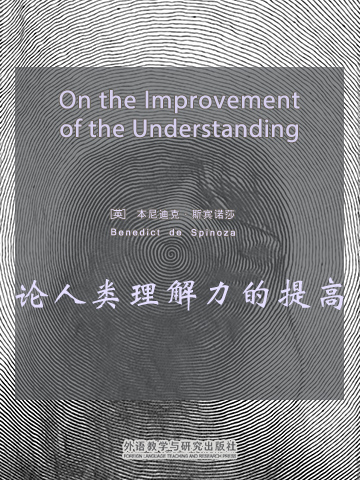大地的融化,海水的暴涨,星辰的坠落,全在于你的理解力。
Tractatus de Intellectus Emendatione (1677) or On The Improvement Of The Understanding, is a seventeenth-century unfinished work of philosophy by the 17th century philosopher Baruch Spinoza. The Tractatus was first published in 1677, the year of Spinoza's death, by some of his closest friends, along with other works including the Ethica and the Tractatus Politicus.[1] The Tractatus is an attempt to formulate a philosophical method that would allow the mind to form the clear and distinct ideas that are necessary for its perfection. It contains, in addition, reflection upon the various kinds of knowledge, an extended treatment of definition, and a lengthy analysis of the nature and causes of doubt. The characteristic of the work is the discussion of different form of perception at Chapter IV and illustration of the best one in relation with the experience and intelligence at the next Chapter. He also addresses the issues of memory and forgetting.
此书是17世纪的哲学家斯宾诺莎的未完之作,是在他去世后由他亲密的朋友集结了其他作品,如《道德》,一起出版的。此书意在形成一种哲学的方法,允许思维形成清晰而不同的想法,对于完美是必要的。此外,还包含了凡茜各种各样的知识、定义、对本质的分析和怀疑的起因。此作品的特色在于讨论了不同形式的知觉,阐述了经历和智力的关系,还解决了记忆与遗忘的问题。
On The Improvement Of The Understanding, is a seventeenth-century unfinished work of philosophy by the 17th century philosopher Baruch Spinoza.It was first published in 1677, the year of Spinoza's death, by some of his closest friends, along with other works including the Ethica and the Tractatus Politicus.The Tractatus is an attempt to formulate a philosophical method that would allow the mind to form the clear and distinct ideas that are necessary for its perfection. It contains, in addition, reflection upon the various kinds of knowledge, an extended treatment of definition, and a lengthy analysis of the nature and causes of doubt. The characteristic of the work is the discussion of different form of perception at Chapter IV and illustration of the best one in relation with the experience and intelligence at the next Chapter. He also addresses the issues of memory and forgetting.
- Notice to the Reader
- Introduction
- First Part of Method
- Second Part of Method
- 书评 写书评
- 笔记
-
书评加载中...























 京公网安备 11010802032529号
京公网安备 11010802032529号
笔记加载中...